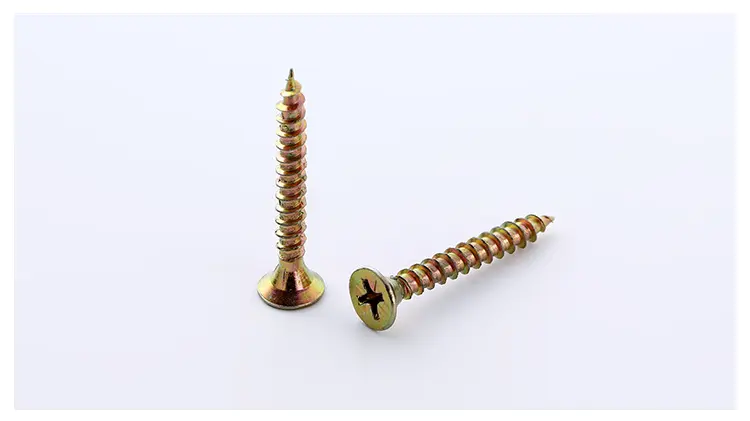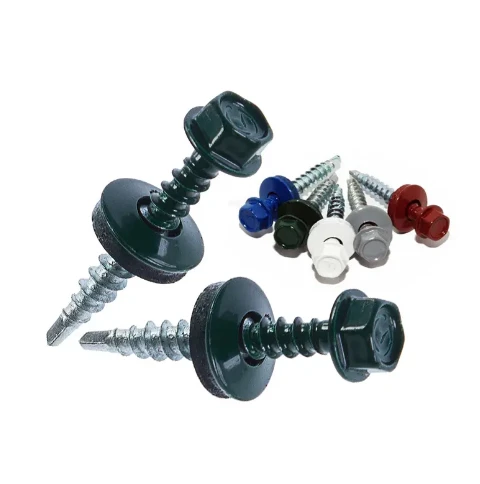3 月 . 06, 2025 16:54
Back to list
FLAT WASHER
In the intricacies of mechanical engineering and assembly processes, the spring washer often takes center stage, despite its unassuming appearance. This small yet crucial component plays a vital role in ensuring the longevity and functionality of machinery. Understanding the purpose and application of spring washers can greatly enhance the efficiency and safety of various mechanical systems.
Mechanical experts have long advocated for the use of spring washers in critical applications due to their ability to enhance reliability. Their use spans from simple applications in household appliances to complex systems in spacecraft. The design and selection of an appropriate spring washer require a deep understanding of the mechanical environment, including load characteristics, environmental conditions, and material properties. Precision in selecting the right spring washer is essential. Engineers must consider factors such as load capacity, deflection rate, and material compatibility. For instance, stainless steel spring washers are ideal for corrosive environments, while phosphor bronze variants offer superior electrical conductivity for electronic applications. Authoritative entities and standards-setting organizations such as the American National Standards Institute (ANSI) and the International Organization for Standardization (ISO) provide guidelines and specifications to ensure the quality and performance of spring washers. Trusted manufacturers adhere to these standards, offering assurance of their products' reliability and consistency. Moreover, the experience and expertise of professionals in sourcing and utilizing spring washers cannot be overstated. Their knowledge ensures the correct application of these components, contributing significantly to operational excellence and safety. In conclusion, the spring washer, though small, serves a pivotal purpose in maintaining the integrity of mechanical assemblies. Its ability to prevent loosening, accommodate material expansion, and distribute load highlights its indispensable role across various industries. Knowledgeable application of spring washers, backed by adherence to international standards and expert guidance, guarantees enhanced performance and durability in mechanical systems. As technology and engineering practices evolve, the reliance on these modest components remains, underscoring their timeless value in the world of mechanics.


Mechanical experts have long advocated for the use of spring washers in critical applications due to their ability to enhance reliability. Their use spans from simple applications in household appliances to complex systems in spacecraft. The design and selection of an appropriate spring washer require a deep understanding of the mechanical environment, including load characteristics, environmental conditions, and material properties. Precision in selecting the right spring washer is essential. Engineers must consider factors such as load capacity, deflection rate, and material compatibility. For instance, stainless steel spring washers are ideal for corrosive environments, while phosphor bronze variants offer superior electrical conductivity for electronic applications. Authoritative entities and standards-setting organizations such as the American National Standards Institute (ANSI) and the International Organization for Standardization (ISO) provide guidelines and specifications to ensure the quality and performance of spring washers. Trusted manufacturers adhere to these standards, offering assurance of their products' reliability and consistency. Moreover, the experience and expertise of professionals in sourcing and utilizing spring washers cannot be overstated. Their knowledge ensures the correct application of these components, contributing significantly to operational excellence and safety. In conclusion, the spring washer, though small, serves a pivotal purpose in maintaining the integrity of mechanical assemblies. Its ability to prevent loosening, accommodate material expansion, and distribute load highlights its indispensable role across various industries. Knowledgeable application of spring washers, backed by adherence to international standards and expert guidance, guarantees enhanced performance and durability in mechanical systems. As technology and engineering practices evolve, the reliance on these modest components remains, underscoring their timeless value in the world of mechanics.
Next:
Prev:
Latest news
-
Top Choices for Plasterboard FixingNewsDec.26,2024
-
The Versatility of Specialty WashersNewsDec.26,2024
-
Secure Your ProjectsNewsDec.26,2024
-
Essential Screws for Chipboard Flooring ProjectsNewsDec.26,2024
-
Choosing the Right Drywall ScrewsNewsDec.26,2024
-
Black Phosphate Screws for Superior PerformanceNewsDec.26,2024
-
The Versatile Choice of Nylon Flat Washers for Your NeedsNewsDec.18,2024
Related News










